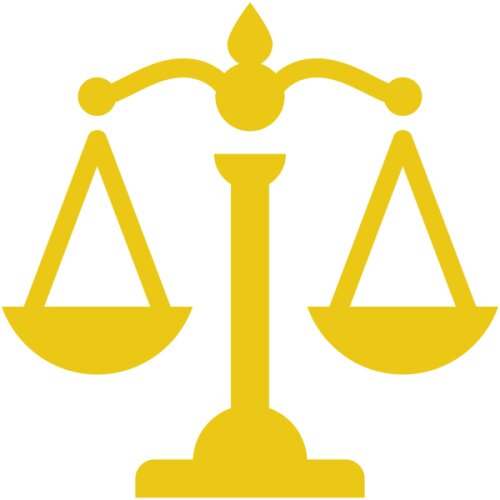Best Collaborative Law Lawyers in Newcastle
Share your needs with us, get contacted by law firms.
Free. Takes 2 min.
Free Guide to Hiring a Family Lawyer
List of the best lawyers in Newcastle, South Africa
About Collaborative Law in Newcastle, South Africa
Collaborative Law is a legal approach designed to resolve disputes amicably, without going to court. In Newcastle, South Africa, this form of dispute resolution prioritizes open communication and cooperation among parties, often used in family law cases like divorces, child custody, and property settlements. It involves a series of structured meetings attended by both parties and their respective lawyers. The goal is to reach a mutually satisfactory agreement through negotiation, supported by experts if necessary, such as financial advisors or child psychologists.
Why You May Need a Lawyer
Engaging a lawyer in Collaborative Law can be crucial in several situations:
- **Divorce and Separation**: When a couple decides to separate, they can seek a collaborative lawyer to manage the division of assets, spousal support, and other key issues amicably.
- **Child Custody and Support**: Parents looking to establish or modify custody arrangements or child support payments in a less adversarial manner might benefit from Collaboration.
- **Property and Financial Disputes**: Collaborative Law can also be an effective way to resolve disputes over property and finances, as it encourages transparent financial disclosure and negotiation.
- **Business or Employment Disagreements**: Business partners or employers and employees might find collaborative negotiation helpful in resolving conflicts while preserving working relationships.
Local Laws Overview
Newcastle, like the rest of South Africa, follows laws that support the principles of Collaborative Law:
- **Promotion of Access to Information Act**: Encourages transparency, which is integral to the collaborative process.
- **Children’s Act**: Guides how decisions affecting children should be made, prioritizing their best interests, which Collaborative Law processes align with.
- **Divorce Act**: Supports amicable resolutions in marital dispute dissolutions, paving the way for alternative dispute resolution methods.
- **Legal Practice Act**: Governs legal practitioners, ensuring they comply with ethical standards which complement collaborative practices.
Frequently Asked Questions
What is Collaborative Law?
Collaborative Law is a legal approach focused on resolving disputes without litigation, relying on negotiation and cooperative techniques.
Is Collaborative Law legally binding?
Yes, agreements reached through Collaborative Law are legally binding once signed by both parties.
How does Collaborative Law differ from mediation?
While both are alternative dispute resolution methods, collaboration involves each party having their own lawyer and possibly other experts to assist in negotiations, unlike mediation where a single mediator facilitates the process.
Can Collaborative Law be used for issues other than family disputes?
Yes, it's applicable in various scenarios, including business and employment disputes.
What happens if the collaborative process fails?
If the process fails, the involved lawyers typically withdraw from the case, and the parties may proceed to court with new legal representation.
Are the discussions during collaborative meetings confidential?
Yes, discussions are confidential and cannot be used as evidence in court should the process fail and litigation ensue.
How long does the collaborative process take?
The time frame can vary depending on the complexity of the issues and the willingness of the parties to cooperate, but it generally takes less time than litigation.
What are the costs associated with Collaborative Law?
Costs can vary widely but are often lower than traditional litigation due to the shorter timeframe and the avoidance of court fees.
Who can participate in the collaborative process?
Besides the parties and their lawyers, other professionals such as financial advisors and child psychologists might be involved to provide specialized input.
What are the main benefits of Collaborative Law?
The main benefits include maintaining privacy, enhancing cooperation, encouraging amicable settlements, and reducing emotional stress and costs.
Additional Resources
For further assistance or information, consider reaching out to:
- **Law Society of South Africa**: Offers guidance on legal professionals specializing in Collaborative Law.
- **Family Law Mediation Association of South Africa**: Provides resources on amicable dispute resolution processes.
- **Department of Justice and Constitutional Development**: Offers insights into statutory laws and rights related to Collaborative Law practices.
Next Steps
If you're considering Collaborative Law in Newcastle, South Africa, start by:
- **Identifying Your Needs**: Determine the nature of your legal issue and whether Collaborative Law is suitable.
- **Researching Lawyers**: Look for legal practitioners who specialize in Collaborative Law by consulting legal directories or local bar associations.
- **Scheduling Consultations**: Meet with potential lawyers to discuss your needs, their approach, and the costs involved.
- **Deciding on Representation**: Choose a lawyer whose approach and experience align with your own goals for resolving your dispute.
Embarking on this journey with the right legal support can lead to an efficient, cost-effective resolution with long-lasting positive outcomes.
Lawzana helps you find the best lawyers and law firms in Newcastle through a curated and pre-screened list of qualified legal professionals. Our platform offers rankings and detailed profiles of attorneys and law firms, allowing you to compare based on practice areas, including Collaborative Law, experience, and client feedback.
Each profile includes a description of the firm's areas of practice, client reviews, team members and partners, year of establishment, spoken languages, office locations, contact information, social media presence, and any published articles or resources. Most firms on our platform speak English and are experienced in both local and international legal matters.
Get a quote from top-rated law firms in Newcastle, South Africa — quickly, securely, and without unnecessary hassle.
Disclaimer:
The information provided on this page is for general informational purposes only and does not constitute legal advice. While we strive to ensure the accuracy and relevance of the content, legal information may change over time, and interpretations of the law can vary. You should always consult with a qualified legal professional for advice specific to your situation.
We disclaim all liability for actions taken or not taken based on the content of this page. If you believe any information is incorrect or outdated, please contact us, and we will review and update it where appropriate.









